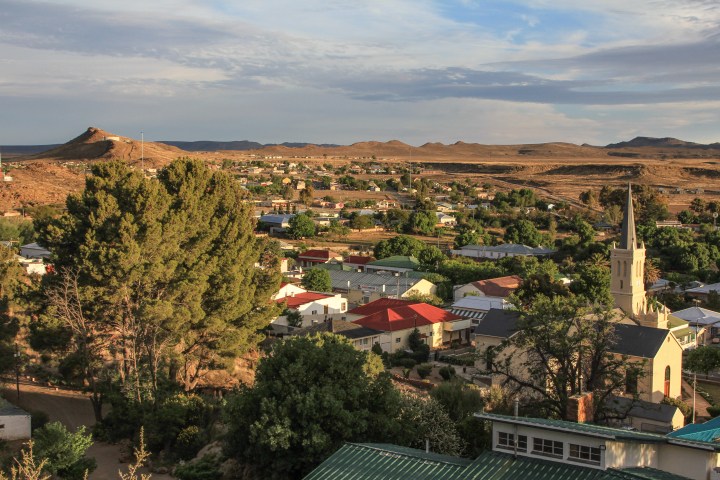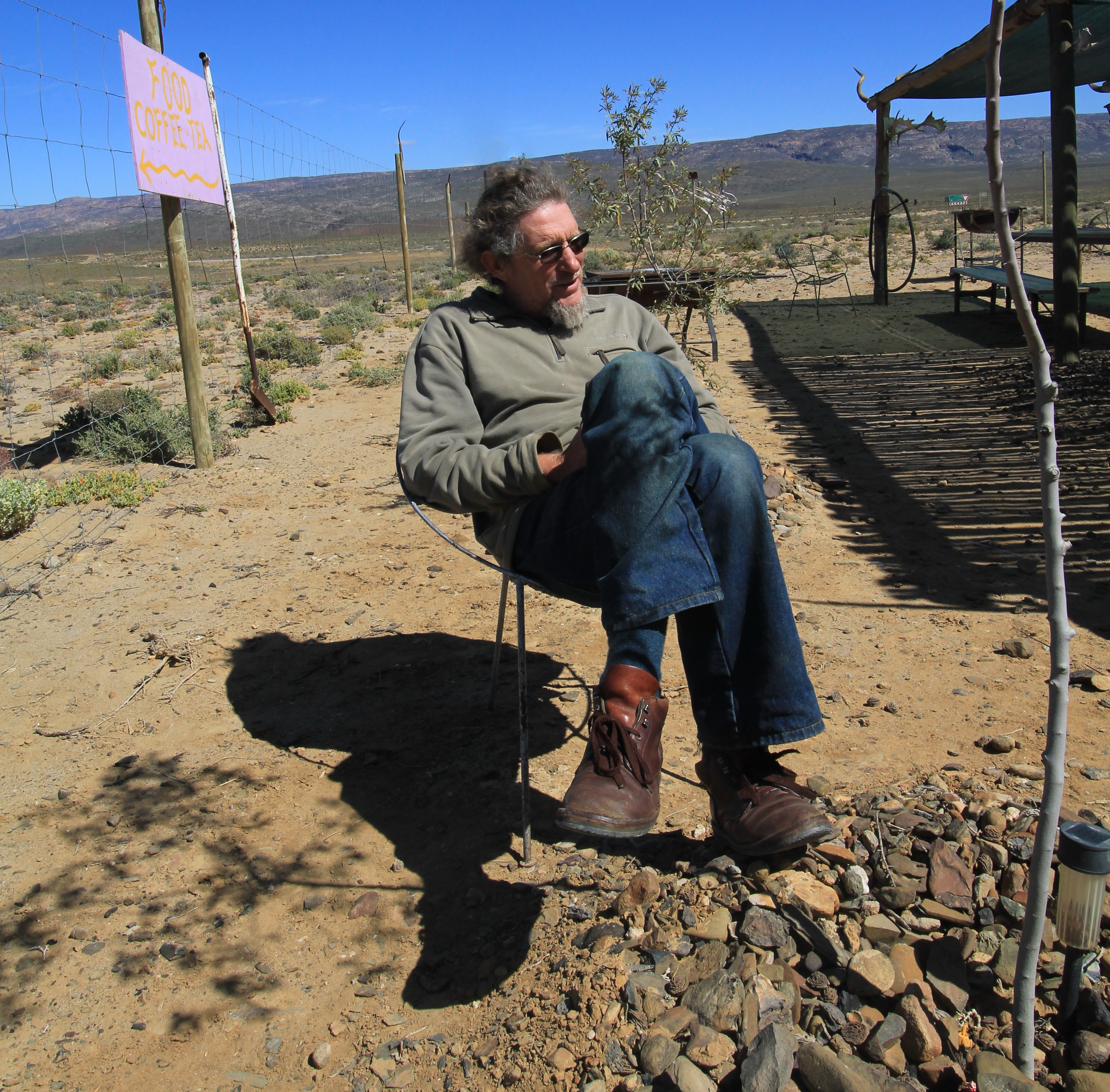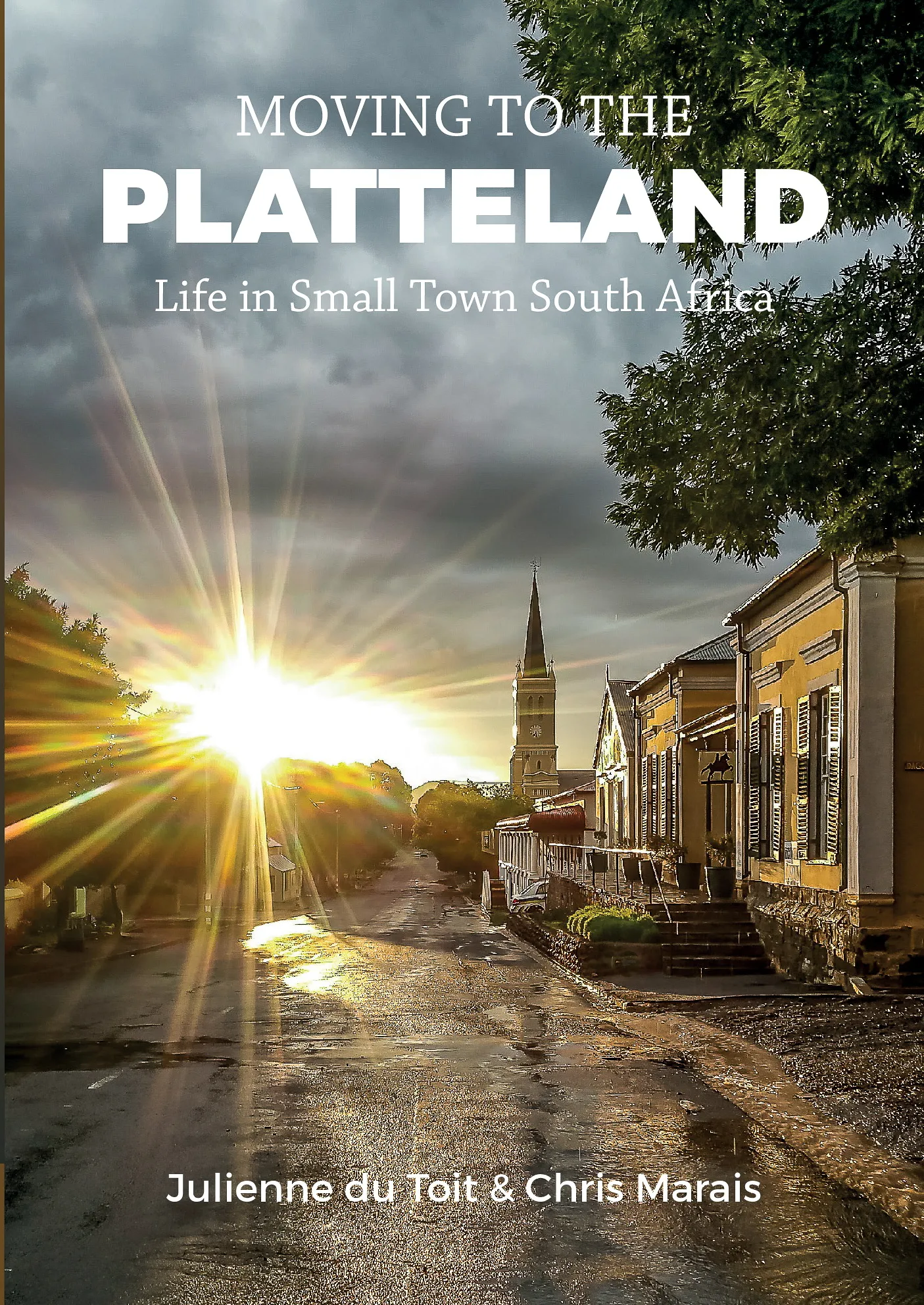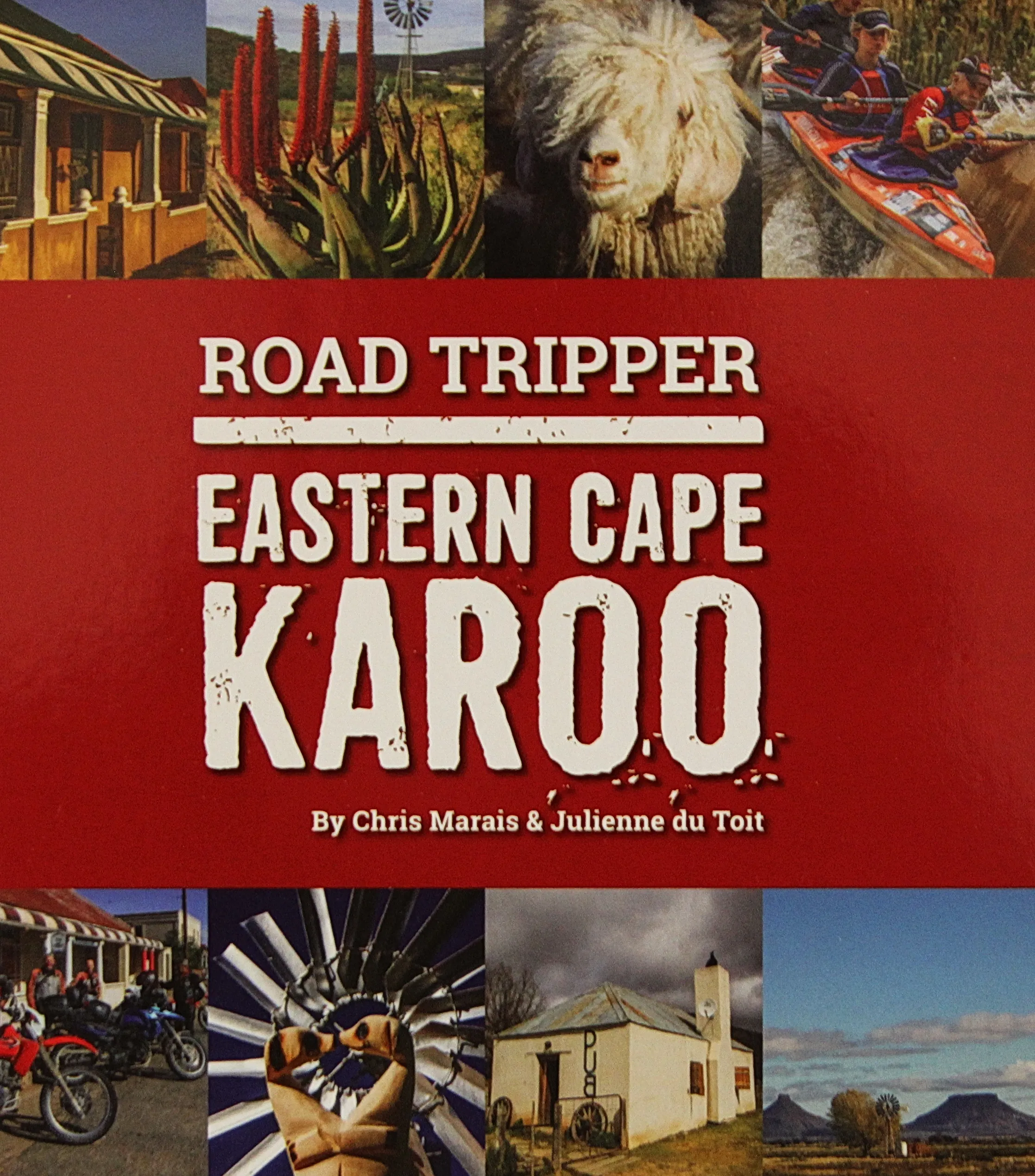SEMIGRATION DIARIES
Following the path from city to country living

They say chickens are a gateway drug for those itching to get out of the traffic and into the countryside. But, as Julienne du Toit and Chris Marais of Karoo Space have found, there are many other triggers that precipitate a move to the platteland.
One morning back in this author’s Joburg days, we took a good friend for a walk around our gated suburb in Wendywood. Up and down the streets we went, each time turning around at the palisaded dead-ends.
“You’re living in a jail,” he pointed out. And so, duly deflated, we trudged back for breakfast like a sad little road gang after the early shift.
Then there was the local boy who would roar up and down the roads on his shrill 50cc motorbike. And the Yorkshire terrier next door with his neverending, glass-shattering voice. The brattish little dog was “in therapy”, its owners told us with straight faces. One time we saw a burglar scamper across our backyard clutching a freshly stolen handbag, then vault over a high wall topped with electric wires, with the ease and grace of an Olympic athlete.
Many friends moved. Some died. The convenience of emails and the internet meant we hardly saw our editors face to face anyhow. What had kept us in Joburg was just slowly fading away.
Most of our trips for the late, lamented Country Life magazine started before the crack of dawn so that we could get through Grasmere Plaza south of the city before the traffic started. It was such a relief to leave the smog behind. Even so, it took many hours of wind-blown silence over the years, countless far horizons and country smiles to finally convince us that being in Joburg was pointless. There were fascinating people in the platteland, and we wanted to live among them.
In 2011, Hein Lange retired from decades of working as a civil servant in Pretoria. He had no particular plan for the next stage of his life but knew he didn’t want to get old and die in the city. In fact, he and his wife Susan had long nursed a crazy dream of heading off to the platteland.
As he put it: “When your children leave home there are only two options open to you, no matter what others might say: either you move to a smaller house and then a smaller one and a smaller one until you die. Or you get rid of everything you don’t need and you follow your dream, until you die.”

Hein Lange and his wife Susan left their life in Pretoria’s suburbs to create the Tankwa Padstal between Calvinia and Ceres. (Photo: Chris Marais)
Hein and Susan decided to take a chance on the latter. They sold up in the city and bought a farm next to that of Hein’s brother Wally. He had moved to the middle of the arid Tankwa Karoo, just off the R355 between Calvinia and Ceres, the longest dirt road in the country.
The two families started up the Tankwa Padstal, which includes a restaurant, a bar, and a shop that sells everything from Okapi knives to Vastrap flypaper, apricot sweets, violin strings and bicycle pumps. Hein and Susan live in a house made of 15,600 onion bags filled with clay, stones and sand. All power is generated by the sun. All water is sourced from the ground and pumped.
Hein started experimenting with growing 43 different kinds of prickly pears, Goji berries, olives, pistachio nuts, pomegranates, figs, apricots, artichokes, lupines, Egyptian clover, potatoes, beetroots, cabbages and carrots.
He even taught himself how to make biodiesel.
“I’m living a dream I didn’t know I had. I also like the silence. Out here you can hear the sound of a bird’s wings as it flies.”
Hein has a theory that if you have respect for people and your surroundings, everything else will come right. He and Susan started the Tankwa Community Projects initiative that helps local farmworkers access medical care; provides them with library books and children’s educational programmes; supports traditional music and Riel dances, and looks after the health, hooves and harnesses of the donkeys that bring them to the Tankwa Padstal.
Stress and mid-career moves
Greg Kappers used to be a corporate man through and through, employed by one of South Africa’s biggest fuel companies and working out of Wadeville, Germiston. His work days revolved around logistics, bitumen and tar.
Part of his job was managing a fleet of vehicles that had to keep the sticky stuff heated to a precise temperature so it would flow properly when needed, a daily logistical drama.
The beginnings of Greg’s platteland dream started, strangely enough, during a Caribbean holiday cruise with his then-girlfriend.
“I saw the islands and the whole experience thrilled me. It was my first real encounter with the hospitality industry. I was never happy with my corporate career after that.”
At the age of 35, Greg Kappers quit his big-salary city job.
His new ambition was to own a guesthouse in the country, so he embarked on long, looping trips around South Africa. On his travels, he carefully noted what he liked, what he thought other visitors might like, and ended up opening a guesthouse in Graaff-Reinet. It is the complete opposite to his former life in the industrial canyons of Germiston.
“There’s peace, serenity and a freshness about the Karoo. I even like the severity of heat and cold. It’s a privilege to be living in a town surrounded by a national park.”
Mountain escape
Terry and Richard von Geusau used to live in a sought-after Cape Town suburb. She did architectural design and he had a high-powered job handling the finances at a very well-known textile and fashion clothing outfit. His life was dominated by stress, suits, ties and boardrooms.
Richard often dreaded going to work.
He and Terry would head off for weekends in Greyton whenever they could, just to decompress and regain some sanity in the mountains.
One fateful day in 1998, someone knocked on their door and offered them a very good price for their house. Richard immediately realised this could be his and Terry’s ticket to freedom. They took a day from work and headed out to Greyton, just on the off-chance.
Destiny stepped in again. They found their dream house and the asking price was exactly what they had just been offered. They signed the paperwork.
“When we woke up that morning, we had no idea what was about to happen. By the time we went to bed, our offer in Greyton had been accepted. Suddenly we were moving to a small town and our lives would change forever.”

Richard von Geusau left a stressed job in Cape Town for a life in Greyton as a chocolatier. (Photo: Chris Marais)

They say chickens are the gateway drug a life in the countryside. (Photo: Chris Marais)
Rico Classen used to be one of the Urban Crushed of Johannesburg. He was addicted to the adrenalin rush of the city along with heroin, cocaine and a cocktail of prescription drugs.
“I was a white collar addict,” he admits.
But when several of his company’s accounting staff died in the September 2001 terror attack on the New York City Twin Towers, it shook Rico to the core. It made him question everything about his life and its direction.
“Why the endless chase after fancy cars, fancy clothes and the big TV?”
In 2002, he left Johannesburg and moved to Uniondale, where his father had been a pastoor in the Pinkster Church. Rico went cold turkey, gritting his teeth and getting through withdrawal symptoms by doggedly working in the garden, planting vegetables until his muscles ached and his hands were blistered. He focused on doing things slowly, from scratch.
“I will never forget the first time I really cooked mieliepap properly. It took hours on the Aga stove. But the taste! It felt like a ritual, feeding my body and my spirit.
“There is nothing more liberating than embracing the dark shadow at your heel. It became my friend in Uniondale.”
“I learnt to be aware of my thoughts and feelings, to accept them and the silence that comes when people leave; that it is all right to let go, and also to nap.”
The Blacksmith’s Tale
Kashief Booley has his roots deep in Cape Town’s Bo-Kaap district.
For years he was involved in oceanographic research, but then discovered the magic of the forge and became a self-taught blacksmith.

Kashief Booley left the Bo-Kaap in Cape Town and now lives a creative life in Prince Albert as a blacksmith. (Photo: Chris Marais)
Back in 2007, he was in the midst of a personal crisis. In a troubled and anxious state, Kashief took a very long drive, and on impulse turned onto the Swartberg Pass linking Oudtshoorn with Prince Albert.
“I sat up there thinking: where to from here? I can’t explain why, but these mountains and the massive views beyond cleared my head. They talk about the mysticism of the Karoo, but that word does not begin to explain the spirituality, the serenity. It helped me to find peace and direction.”
He looked at some land in Prince Albert and contemplated a move with his wife Sophia.
“The next thing I knew, we’d left Cape Town. Anyway, a city is no place to raise children. Here one finds a spirit of community and we can live more sustainably. We go into the mountains. The streams are clear.” DM
This is an extract from Moving to the Platteland – Life in Small Town South Africa by Julienne du Toit and Chris Marais. For an insider’s view on semigration and small town life in South Africa, get Moving to the Platteland and Road Tripper Eastern Cape Karoo (illustrated in black and white) by Julienne du Toit and Chris Marais for only R520, including courier costs in South Africa. For more details, contact Julie at [email protected]

‘Moving to the Platteland: Life in Small Town South Africa’ by Chris Marais and Julienne du Toit.

‘Road Tripper: Eastern Cape Karoo’ by Chris Marais and Julienne du Toit.




















These Platteland tales are always good articles
I am scared to buy the books…. Might result in a life changing journey to the platteland from the joburg rat race.
I Love these stories, keep em coming!
Yeah so we moved from Kalk Bay to Napier…and we have chickens and vegetables out in the back and my wife has a bookshop…Blue House Books. And my dream is for Napier to become a musical destination. There are two recording studios that I know of. About 180 km from CT. Come visit.
None at the moment